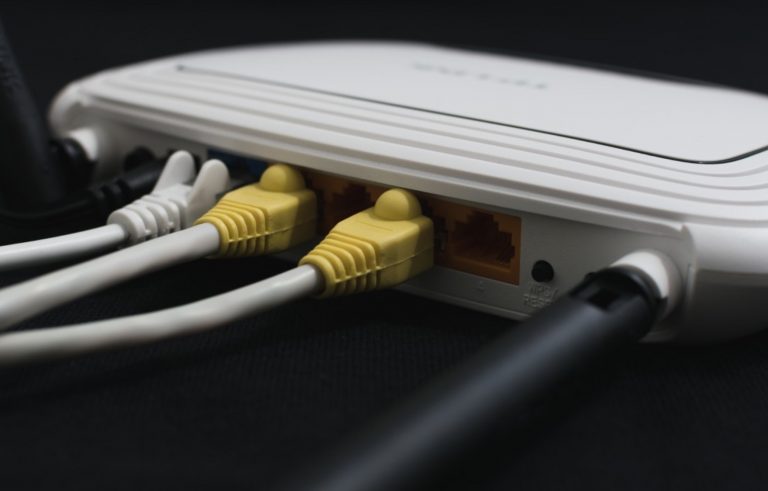If you’re looking for a more flexible alternative to regular broadband, you may want to look into 4G home broadband. If you live in areas where there are no fiber cables or who plainly want something different, you can give this broadband type a try. In simple terms, 4G broadband is just like regular broadband, but with a few differences. It can also deliver a stable internet connection while paying a monthly fee—just like the traditional home broadband you get from your internet provider.
Let’s dig into the nitty-gritty parts of 4G home broadband to help you decide if this broadband type is better for you.
Story Stages
So, What Exactly is a 4G Home Broadband, and How Does It Work?
Rather than relying on a traditional fixed-line connection, 4G home broadband utilizes a mobile network (such as a phone line or fiber optic cable). It’s like obtaining mobile data on the phone; you don’t need a wired connection to your router to get 4G home internet service. However, instead of the data flowing directly to your phone, it’s going through a network and then to your other devices.
Much like a smartphone, your router can connect to a 4G signal with a 4G home broadband. As a result, no cords are needed to transmit the signal from the mobile phone mast to your router. With 4G home broadband, you no longer need a landline.
All of your gadgets can connect to the internet whenever your router picks up a mobile signal. Since there aren’t any cords to connect your router to the signal source like you would with fiber broadband, the only significant difference is that you’ll still need to plug your router in for power.
Both money and time will be saved because there are no wires connecting your device to a landline, and you won’t require an expert to install it. The lack of a requirement for fiber cables means that 4G internet can be a viable choice for remote and rural regions. 5G home broadband operates in much the same manner as 4G home internet, except you have access to a considerably faster 5G connection (only if your home is covered by a wireless provider that offers a 5G network.)
Benefits of 4G Home Broadband
1. Speed
We all desire a high-speed internet connection. If you have a large number of devices to connect and a household full of internet users, you’ll need reliable internet access throughout your home. Streaming, gaming, surfing, and watching TV benefit from 4G Home internet speeds.
As compared to fiber internet, 4G broadband delivers comparable speeds and substantially quicker speeds than ADSL or satellite fixed-line broadband. There is a noticeable difference between the average 4G broadband speed of 31 Mb/s and the ADSL broadband speed of 24 Mb/s. As a result, this is a much better option for the vast majority of people.
2. Availability
Some rural areas are unable to access certain fixed-line broadband services. Does it feel like you’re in the middle of nowhere when you’re trying to get online? Are you contemplating moving to the city because of your shaky internet connection? Fortunately, there may be a solution that you’re unaware of.
So, for example, if you currently have cable internet, but you prefer to upgrade to a fiber internet that is currently unavailable in your location, 4G broadband is your best option. As mentioned, 4G is comparable to fiber internet when it comes to performance, so it can be your only solution.
3. Portability
One of the main selling points of 4G broadband over traditional fixed-line options is its portability. ADSL, Fibre, and cable broadband are all examples of fixed-line broadbands. To connect this internet to your home, they use typical cable methods. The downside to this is that they are more limiting, as you can’t take the internet with you when you leave the house. With that in mind, 4G Home offers more adaptability.
4. Reliability
Once you’ve looked into the broadband options available in your area, the next step would be finding the most reliable internet provider. It is widely known that ADSL broadband is less reliable than fiber internet. Copper wires are more prone to breakage because they are less sturdy.
Due to copper’s lack of resistance to the elements, poor weather may disrupt connections. Fiber internet, on the other hand, is more durable since fiber-optic cables are better at coping with wear and tear and withstanding environmental hazards like strong winds, storms, and fire.
Unlike 3G and 4G, 4G uses phone signals rather than wires, making it less susceptible to weather. As a remote worker during COVID-19, if you don’t want to be slowed down by annoying disconnections and interferences, 4G home broadband may be the answer for you.
Conclusion
4G home broadband is an excellent alternative to most internet types, including fiber internet. When it comes to price, performance, and reliability, you can consider 4G broadband as one of the best options for your home internet. However, you have to make sure to choose the best plan that suits your needs and lifestyle.
